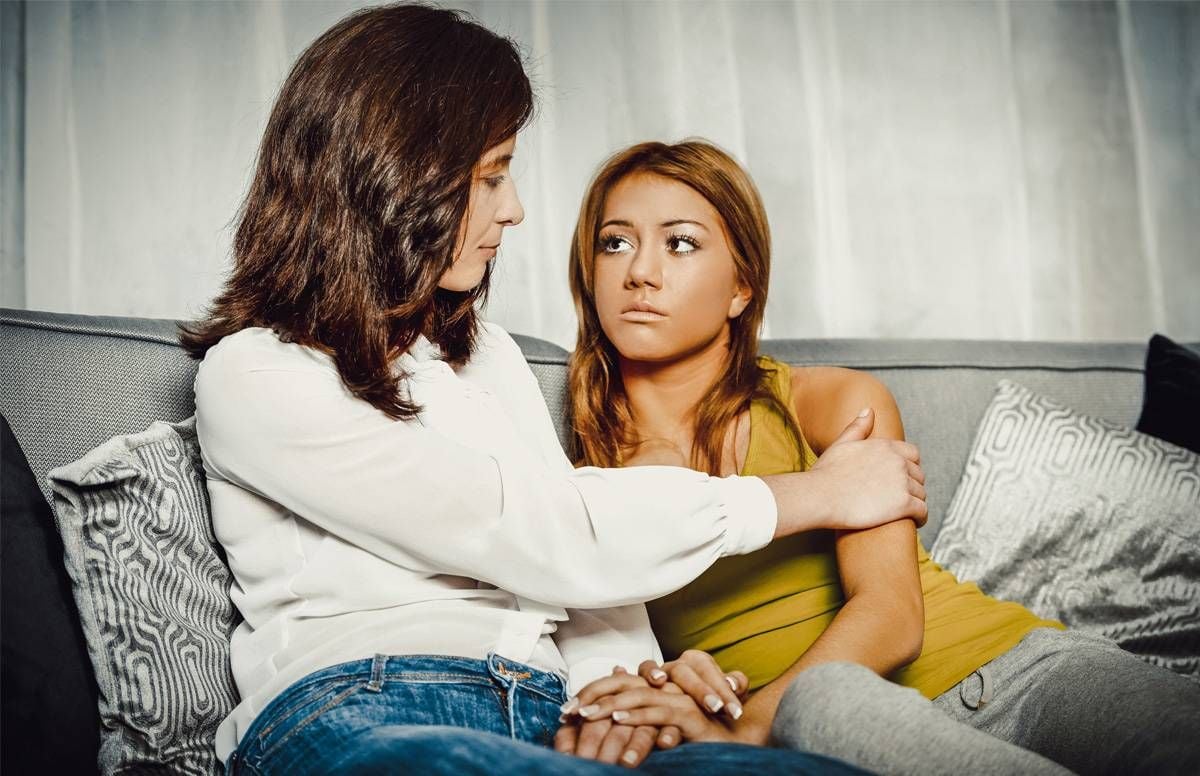COVID-19 and Our Feelings of Helplessness
An uncertain time compels us to listen more, support others and remain hopeful
There I was, standing 10 feet from my 26-year-old daughter. An hour earlier, Becky had phoned to tell me she was unable to smell or taste anything and was feeling pressure in her chest. She looked exhausted and depleted, like someone who could use a cup of chicken noodle soup and a dose of TLC. But what she wanted was far less satisying. A thermometer. Liquid soap. A roll of paper towels. And that I keep my distance.

Now, goods delivered, I couldn’t follow her up to her apartment, tuck her into bed and feel her brow for signs of temperature. I couldn’t offer a meal. “Eating isn’t enjoyable,” she’d told me. “It makes me sad I can’t taste anything.”
I couldn’t even offer the most obvious motherly offering: a hug.
“Cyber hug,” I called wanly to her back as she disappeared through the front door of her building. “I love you.”
Talk about feeling helpless. This confounding virus mucks with more than our physical well-being. It frustrates our most basic human instincts. It frustrates our ability to demonstrate our compassion. It frustrates our capacity to be there for the people we love, not only in the ICU, but right in our own homes.
Our Commitment to Covering the Coronavirus
We are committed to reliable reporting on the risks of the coronavirus and steps you can take to benefit you, your loved ones and others in your community. Read Next Avenue's Coronavirus Coverage.
No less confounding, we often don’t know for sure that it’s COVID-19 we’re dealing with, so we don’t know whether all the keep-your-distance precautions are necessary.
The unavailability of tests in some areas (as was the case with Becky that April day in New Jersey) and the days-to-weeks-long delays of test results in others (as continues to be a problem around the country), leaves us uncertain — but not unconvinced — that we must safe-distance from our safety zone of loved ones.
Uncertainty, But a Moot Point
Even when a COVID-19 test is available, the false-negative rate is so high — at least 1 in 5 — that it’s hard to trust the result. After my friend Claude, 66, got a negative result in mid-July following 10 days of low-grade fever, headaches and fatigue, he texted me, “Tested neg, but doc thinks I probably still had it.”
By then, the result was all but a moot point. During those 10 days, Claude had dutifully quarantined in his California home, having been told by a doctor, “Assume you have it and operate on that basis.” For Claude, that was no problem. “I just wanted to be left alone and not have to expend energy explaining what I didn’t want to explain,” he says. “I slept a tremendous amount.”
That left his wife, Ellen, who also went into lockdown mode (though she didn’t, and still doesn’t, believe her husband had COVID-19), to deal with people’s reactions.
“Most of me thought it was just normal sick,” she says. “Then I’d talk to a hysterical friend and it would make me go off the deep end, having visions of him landing up in a hospital on a ventilator.”
This confounding virus mucks with more than our physical well-being. It frustrates our most basic human instincts.
Ellen, 64, says she knows her friends meant well, but “the hysteria was crazy-making. The last thing I needed was for a friend to fan the flames.”
What would have been more helpful?
“If they’d said, ‘Don’t worry, it will be fine,’” she says, “like a normal person says under normal circumstances.”
A Little Humor Can Help
Absent any semblance of normal, sometimes a little humor helps.
While on a trip to Florida in June, my sister-in-law Lou Anna, 58, and nephew Louis, 19, began to experience chills and fever, and soon tested positive for COVID-19. From their home in North Carolina, my brother Alan bombarded them with funny texts and emails that helped distract from their biggest concern: bringing the coronavirus home to Alan, 66, whose diabetes and arthritis puts him in a high-risk category.
“I teased a lot,” Alan says. “I told Lou Anna she could sleep in the backyard.”
When they returned home, Alan greeted them with flowers and a homemade card penned with one message in large letters, “I missed you!” and another in tiny print, “Keep the f--- away from me.”
That cracked them up. “Alan’s humor was the best,” says Lou Anna (who was then promptly banished to their basement quarters, where she and Louis remained until they received an all-clear from tracers a week later).
Laughter laced with a touch of profanity ain’t elegant, but sometimes it strikes just the right note.
When my friend Cynthia, 65, reported that she was experiencing headaches, stuffiness and lethargy, I — unable to think of anything useful to offer — sputtered ineloquently, “There’s really nothing I can say except, Oh, s—t.”
She laughed, and then, dropping her voice, said quietly, “Thank you.” Later, she told me, “It was the perfect thing to say. That kind of is all you can say.”
'You Can't Be There for Comfort'
Unlike my daughter, brother and sister-in-law, and friends Claude and Ellen, whose brushes with the coronavirus (or its prospect) proved essentially an inconvenience, I knew that COVID-19 (or its prospect) would be enormously disruptive for Cynthia and her family.
For the last several months, Cynthia has been commuting weekly from her home in Florida’s Broward County to her daughter’s home, a half hour away, to care for her 3-year-old and 11-year-old granddaughters, while her daughter and son-in-law work from home. As the only relative within driving distance, Cynthia feels a keen responsibility to help lighten their load.
But on a morning in late July, Ella, 11, emerged from her bedroom complaining of nausea, a sore throat, congestion and a severe headache. Talk about feeling helpless.
“I felt kind of gob-smacked,” Cynthia says. “I told her to put her mask on. I put mine on. I had to ask her to sit down and stay on the couch.”
Though Cynthia took pains not to frighten her granddaughter, Ella got it right away. “When she realized my reaction was standoffish, she got afraid she’d get me sick,” says Cynthia, whose chronic kidney disease puts her at risk of dire consequences.
"The challenge is to acknowledge you're a bit helpless, but not hopeless."
After Cynthia returned home, she quickly began to experience her own symptoms.
Four years earlier, when Cynthia’s husband had died, her family members had leaned on each other for support. Now, they had to maintain what felt like an unnatural distance.
“We’ve never experienced this thing where if someone in your family gets sick, you can’t be with them,” Cynthia says. “It’s the worst possible outcome. You can’t be there for comfort. You can’t be there for advocacy. You can’t be there, period. It was a really helpless feeling.”
For a week, they maintained their distance. Then the test results arrived: negative for both Cynthia and Ella.
Cynthia has now resumed her weekly child care duties. But that will stop when Ella returns to her private school, a parental decision that doesn’t sit well with Cynthia. “We all ducked a bullet, but how many will you duck?” she says. “It’s still in the community.”
While not happy about the prospect of more isolation from her family, Cynthia is firm in her resolve. “The challenge is to acknowledge you’re a bit helpless, but not hopeless,” she says. “You can still make decisions.”
She acknowledges that her daughter and son-in-law are entitled to their decisions, too. She also knows that it’s not helpful to offer them advice that they already know only too well (and don’t want to hear).
That leaves her with what may be the best option for any of us at this difficult time: Help less. Listen more. And hope for the best.


